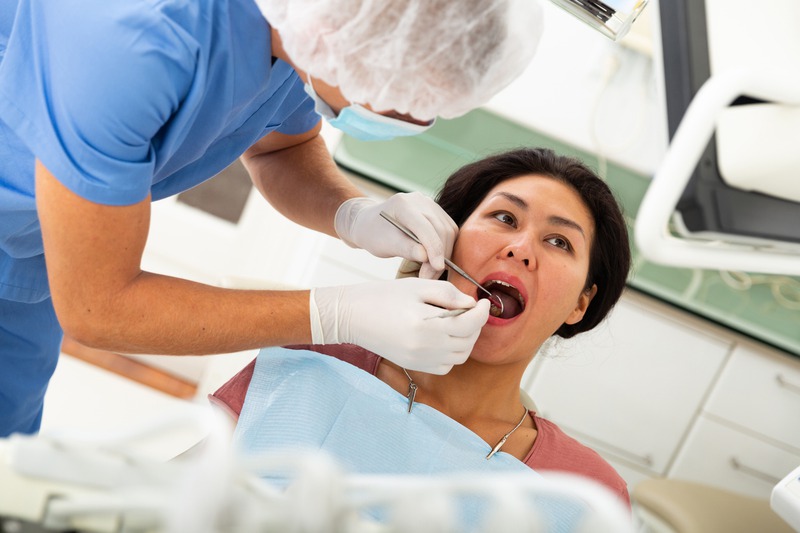Outpatient treatment is a popular choice for many individuals due to its flexibility and ability to fit into one’s daily routine. This form of treatment allows patients to live at home and continue with their daily activities, such as work or school while receiving care.
Types of Outpatient Treatment
There are various types of outpatient treatments available, including:
-
Individual Therapy: One-on-one sessions with a therapist.
-
Group Therapy: Participation in therapy sessions with others who have similar issues.
-
Family Therapy: Therapist-guided sessions involving family members.
-
Medication Management: Supervised use of medicines to manage symptoms.
Who Is Suitable for Outpatient Treatment?
Not everyone is a candidate for outpatient treatment. It’s generally best for those who:
-
Have a supportive home environment
-
Are motivated to achieve sobriety
-
Have mild to moderate addiction levels
-
Have already completed an inpatient program
-
Require ongoing support after intensive treatment
Comparing Outpatient and Inpatient Treatments
The key difference between outpatient and inpatient treatments lies in the living arrangement and level of supervision. Here’s a comparative look:
-
Inpatient Treatment: Involves staying at a facility 24/7 with structured routines and continuous medical supervision. It is ideal for severe addictions and those needing a stable environment.
-
Outpatient Treatment: Allows patients to stay at home, attend to their responsibilities, and visit the facility for scheduled therapy sessions. They are suited for mild to moderate addictions.
Dealing with Co-Occurring Disorders
Outpatient treatment can effectively address co-occurring disorders. For example, if you’re looking for New Jersey dual diagnosis anxiety treatment, outpatient programs can offer specialized care that addresses both addiction and anxiety concurrently.
Benefits of Outpatient Treatment
Why do many individuals choose outpatient treatment? Here are some benefits:
-
Flexibility: Patients can continue working or going to school.
-
Cost-Effective: Often less expensive than inpatient programs.
-
Support System: Patients stay connected with family and friends.
-
Privacy: Treatment without significant disruption to daily life.
What to Expect During Outpatient Treatment
Outpatient treatment involves various therapies and support services tailored to individual needs. Here’s what typically happens:
-
Assessment and Intake: Comprehensive evaluation to understand the patient’s condition.
-
Personalized Treatment Plan: Development of a tailored treatment plan.
-
Therapy Sessions: Regular individual, group, and family therapy sessions.
-
Ongoing Monitoring: Regular monitoring and adjustments to the treatment plan.
Intensive Outpatient Programs (IOP)
For those needing a higher level of care without full-time residency, intensive outpatient programs (IOP) are an excellent option. These programs offer:
-
Frequent Therapy Sessions: Multiple sessions per week.
-
Comprehensive Care: A mix of individual and group therapy.
-
Flexibility: Patients can still live at home and maintain their daily routines.
When Outpatient Treatment Is Not Enough
Outpatient treatment may not be sufficient for everyone. Some signs that a more intensive level of care, such as inpatient treatment, might be needed include:
-
Severe Withdrawal Symptoms: Requiring medical detoxification.
-
Lack of Support: An unsupportive or unstable home environment.
-
Co-Occurring Disorders: Dual diagnoses that require intensive treatment.
-
Relapse: Frequent relapses despite outpatient care.
Factors to Consider When Choosing Outpatient Treatment
When deciding if outpatient treatment is right for you or a loved one, consider these factors:
-
Severity of Addiction: More severe cases might require inpatient care.
-
Support System: A strong, supportive network at home aids recovery.
-
Personal Commitments: Ability to manage treatment along with daily responsibilities.
-
Cost and Insurance: Outpatient treatment is generally more affordable and often covered by insurance.
Support Services in Outpatient Programs
Successful outpatient programs offer a range of support services to facilitate recovery, such as:
-
Life Skills Training: Teaching coping strategies and self-care practices.
-
Job Assistance: Help with employment and vocational training.
-
Educational Support: Assistance with continuing education.
-
Alumni Programs: Ongoing support after completion of treatment.
How to Get Started with Outpatient Treatment
If you think outpatient treatment is the right option, here’s how to get started:
-
Research: Look for reputable recovery centers offering outpatient programs.
-
Consultation: Schedule a consultation to discuss individual needs.
-
Assessment: Undergo an assessment to determine the appropriate level of care.
-
Enrolment: Enroll in the program and begin the journey to recovery.
Considering Location
For those searching for New Jersey outpatient addiction treatments, it’s important to consider the proximity of the facility to home, work, and support networks.
Post-Treatment Support
Recovery doesn’t end after completing an outpatient program. Continuous support is crucial, which includes:
-
Regular Check-Ins: Ongoing appointments with therapists.
-
Support Groups: Attendance in peer support groups or 12-step programs.
-
Family Therapy: Continued family involvement in the recovery process.
If dual diagnoses such as PTSD are involved, opting for dual diagnosis PTSD treatment in New Jersey within an outpatient setting can provide comprehensive care tailored to complex needs. Prioritize your health and well-being by selecting the treatment that best suits your life and recovery goals. Remember, the first step to recovery is reaching out for help.
Final Thoughts
Outpatient treatment offers a flexible, cost-effective alternative to inpatient care, suitable for those with a supportive environment and a strong commitment to recovery. It addresses various needs through personalized treatment plans and continuous support, making it an excellent option for many individuals on their recovery journey.





